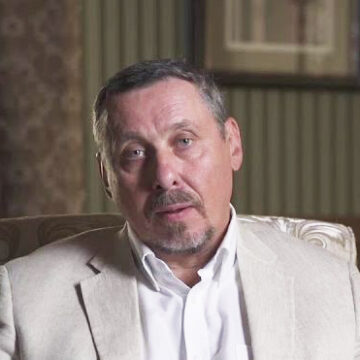The year 2016 marked the end of a 70-year period in international relations that consisted of two phases: the Cold War in the 1940s-1980s and the time of transition a er the disintegration of the Soviet Union. Today the world is on its way into a new paradigm. It was announced at the end of the 1980s and the beginning of the 1990s but never became a reality. e past quarter of a century was not a time of building a new world order but an attempt to adapt existing institutions that had survived ideological confrontation (mainly those that catered to the needs of the Western world) to a completely different international context. These attempts predictably failed.
This project originated in 2015 when intellectual interaction between Russia and the West was rapidly degrading to mutual accusations and verbal fights over “who is to blame” and “how much more Russia should suffer before it is ready to repent.” We sought to provide a forum for analysts and political practitioners from Russia, Europe, the United States, and China to conduct a constructive dialogue and ultimately move from producing endless recriminations and claims to discussing the future of Russia’s role in international a airs. Naturally, this also meant discussing the future of the world as a whole.
At initial stages, we made a point of limiting our debates to a five-year period. This is the usual timeframe for national budget accounting. In other words, it is short enough to keep the thought from wandering astray. But it became clear quite soon that even such a limited timeframe was not very helpful for visualizing the future world order. The 20th century approaches, losing ground but remaining in force until the 2010s, albeit largely by inertia, have outlived themselves, and global politics is entering a new barely predictable era.
The global shift that began in the 1980s-1990s brought great expectations and hopes for building a “brave new world.” Russia emerged out of the rubble le by the Soviet Union’s collapse that became a truly pivotal point and was an important part of the “dreaming space.” A quarter of a century on, it is clear that most of the dreams never came true. e world failed to assume a state of balance that would replace the state of confrontation it was in throughout the second half of the 20th century. Russia made an attempt to become a “normal country” and integrate itself into Greater Europe but failed. It, for one, simply could not t itself into the proposed format even though it earnestly tried to do so at first. And then, the Western-centric model visualized in the early 1990s never materialized in full.


Westernizers and pochvenniks, Atlanticists and Eurasianists, liberals and dirigistes are resuming their never-ending but quite predictable disputes.
The authors of this paper think that these disputes are worthy of attention as they can provide an insight into the new meaning and new qualities of Russia’s positioning in world a airs. Also, they may help us understand whether we can grasp this new meaning and go beyond the habitual ideological battles that have been recurring since the 19th century.
Perestroika launched the process of the country’s attempts to assess its prospects in the new world, releasing intellectual energy that had been suppressed for decades by the Soviet system. But the discourse was interrupted for about twenty years by the collapse of the Soviet Union. At first, the state and citizens were merely struggling to survive and then enjoyed the benefits of hydrocarbon wealth and the consumption boom it generated. Attempts to resume the discussion of ideas and values in 2012-2013 were torpedoed by the crisis in Ukraine: the authorities and society went into mobilization mode, and any thought was checked by propaganda and denunciation of “the h column” of the one side and “the henchmen of the regime” of the other.
Yet this discussion will have to be resumed one day since it has long been clear that the international environment is changing dramatically and the recipes of the past—liberal or conservative, progressionist or reactionary, leftist or rightist—no longer work. ere is global demand for new ideas and a conceptual framework for development, but none are available so far. ere is nowhere for Russia to borrow ready answers and it will have to find them on its own.
We have focused our attention on an issue that was probably most popular in terms of Russia’s positioning over the past three decades and the preceding two centuries, that is, relations with Europe. In making our choice we were guided not by the stereotype but by the understanding that this is exactly where crucial changes had occurred and continue to occur.
We don’t claim to know all the answers. We simply want to describe the situation and outline the contours of future discourse. e project will continue next year to pay more attention to non-European dimensions of the topic and take a critical look at the main points of this paper.











